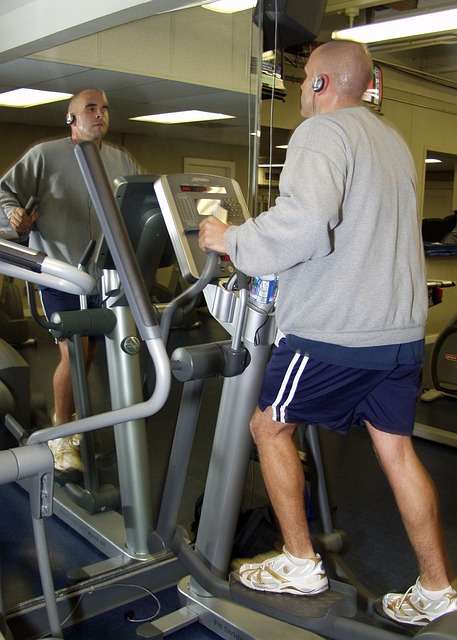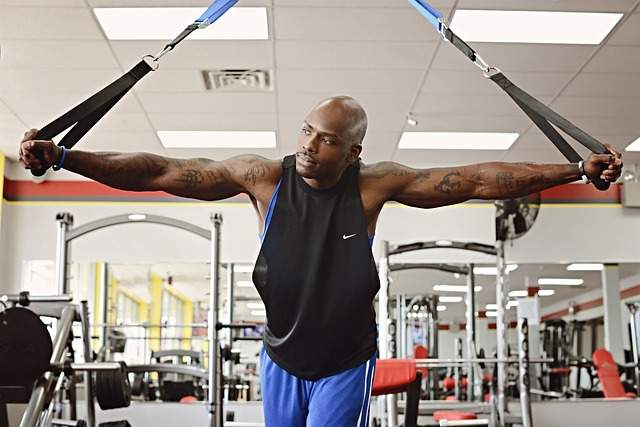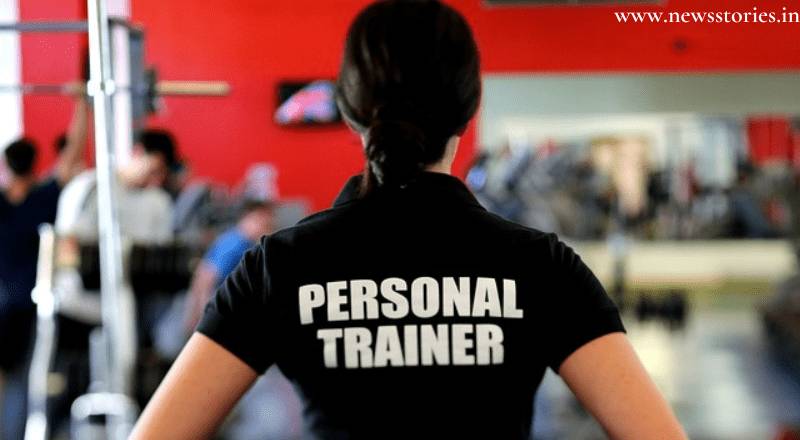Personal Trainer: Transforming Lives Through Fitness
Introduction
Welcome to our comprehensive guide on the role of a personal trainer and how they can help you achieve your fitness goals. Whether you’re looking to lose weight, build muscle, improve your athletic performance, or simply adopt a healthier lifestyle.
A personal trainer can provide the expertise and guidance you need. In this article, we’ll delve into the world of personal training, exploring the benefits. Qualifications, training methods, and frequently asked questions.
So, let’s kickstart your fitness journey and discover the transformative power of a personal trainer.
The Importance of a Personal Trainer
A personal trainer is a fitness professional who possesses the knowledge and skills. To design personalized exercise programs tailored to individual needs and goals. They serve as mentors, educators, motivators, and accountability partners, providing invaluable support on your fitness journey. With their guidance, you can maximize your workout efficiency, stay consistent, and overcome challenges.
Why Hire a Personal Trainer?

Personalized Workout Plans for Optimal Results
When it comes to achieving your fitness goals, a one-size-fits-all approach simply won’t cut it. A personal trainer will assess your current fitness level, discuss your objectives.
And design a customized workout plan specifically tailored to your unique needs and preferences. By focusing on your individual strengths, weaknesses, and limitations, they can optimize your workouts for maximum efficiency and results.
Expertise and Knowledge
A qualified personal trainer possesses an in-depth understanding of exercise science, anatomy, physiology, and nutrition. They stay up to date with the latest research and trends in the fitness industry. Ensuring that their clients receive evidence-based guidance.
With their expertise, they can help you avoid injury, optimize your technique. And provide valuable insights into the most effective training methods.
Motivation and Accountability

Staying motivated and committed to your fitness goals can be challenging, especially when faced with obstacles or plateaus. A personal trainer serves as a source of motivation and accountability, pushing you to give your best and stay on track.
They celebrate your successes, provide constructive feedback, and help you overcome self-doubt or mental barriers that may hinder your progress.
Variety and Progression
A skilled personal trainer will keep your workouts exciting and engaging by introducing a variety of exercises and training techniques. They understand the importance of progressive overload, gradually increasing.
The intensity, duration, or complexity of your workouts to stimulate ongoing improvement. By preventing boredom and ensuring continuous progress, they help you avoid plateaus and reach new levels of fitness.
Proper Form and Injury Prevention
One of the most significant benefits of working with a personal trainer is their emphasis on proper form and technique. They guide you through exercises, ensuring that you maintain correct alignment and posture to minimize the risk of injury.
By teaching you the proper execution of movements, they lay a solid foundation for long-term success and injury prevention.
Also Read : https://newsstories.in/unlocking-the-power-of-pilates-the-ultimate-guide-to-transform-your-body-and-mind/
Qualifications of a Personal Trainer

To ensure you receive the highest quality of training and guidance. It’s crucial to work with a qualified and certified personal trainer. Here are some common certifications and qualifications to look for:
National Academy of Sports Medicine (NASM): NASM is one of the most respected certifying bodies for personal trainers. Their certifications cover comprehensive fitness training programs and are highly regarded within the industry.
American Council on Exercise (ACE): ACE offers certifications that focus on practical, evidence-based training methods. Their certifications are recognized worldwide and demonstrate a trainer’s commitment to ongoing education.
International Sports Sciences Association (ISSA): ISSA provides certifications that encompass a broad range of fitness disciplines. From personal training to specialized areas like sports nutrition and strength and conditioning.
Certified Strength and Conditioning Specialist (CSCS): Offered by the National Strength and Conditioning Association (NSCA). The CSCS certification is ideal for individuals seeking to improve athletic performance or work with athletes.
Precision Nutrition Certification: This certification focuses on nutrition coaching and is highly regarded in the fitness industry. Trainers with this certification can offer expert guidance on diet and nutrition to complement your exercise routine.
It’s important to note that certifications should be accompanied by practical experience and a proven track record of success. Don’t hesitate to ask potential trainers about their experience, client testimonials, and success stories.
Training Methods and Techniques

Personal trainers utilize a variety of training methods and techniques to help their clients achieve their fitness goals. Here are some popular approaches you may come across during your fitness journey.
High-Intensity Interval Training (HIIT)
HIIT involves switching back and forth between quick bursts of vigorous activity and rest intervals. This method is known for its effectiveness in boosting cardiovascular fitness, burning calories, and improving metabolism.
HIIT workouts are typically time-efficient and can be modified to suit various fitness levels and preferences.
Strength Training
Strength training focuses on building muscular strength and endurance by lifting weights or utilizing resistance equipment. This type of training can improve bone density, increase lean muscle mass, enhance metabolism, and boost overall strength.
Personal trainers guide clients through proper technique and help them progress through different levels of resistance training.
Functional Training
Functional training emphasizes movements that mimic everyday activities or sports-specific actions. By engaging multiple muscle groups and improving coordination, functional training enhances overall body stability, balance, and mobility.
Trainers incorporate exercises using stability balls, resistance bands, kettlebells, and bodyweight movements to target specific functional fitness goals.
Cardiovascular Training
Cardiovascular training, also known as cardio, focuses on improving cardiovascular endurance and respiratory fitness. It involves activities such as running, cycling, swimming, or using cardio machines like treadmills or ellipticals.
Personal trainers can help you establish appropriate cardio routines based on your fitness level and goals.
Flexibility and Mobility Training
Flexibility and mobility training aim to improve joint range of motion, prevent muscle imbalances, and enhance overall flexibility.
Trainers incorporate stretching exercises, yoga poses, and mobility drills to increase joint mobility, reduce muscle stiffness, and improve posture.
Frequently Asked Questions (FAQs)

How frequently ought I to work out with a personal trainer?
Ideally, working with a personal trainer 2-3 times a week can provide the best balance between guidance and independent training. However, the frequency of sessions depends on your goals, availability, and budget. Trainers can also design personalized workout plans for you to follow on your own.
How long does it take to see results with a personal trainer?
The time it takes to see results varies depending on individual factors such as current fitness level. Consistency, nutrition, and adherence to the trainer’s recommendations. With proper guidance and commitment, noticeable improvements can typically be seen within a few weeks to a couple of months.
Can a personal trainer help with weight loss?
Absolutely! Personal trainers are well-equipped to assist with weight loss goals. They can design effective workouts that incorporate a combination of cardio, strength training. And nutrition guidance to create a calorie deficit and promote fat loss.
Can a personal trainer work with individuals with medical conditions or injuries?
Yes, many personal trainers specialize in working with individuals who have medical conditions or injuries. They can modify exercises, provide alternatives. And collaborate with healthcare professionals to ensure safe and effective training.
Are personal trainers only for beginners?
No, personal trainers cater to individuals of all fitness levels, from beginners to advanced athletes. They adapt training programs to challenge and accommodate each client’s abilities, ensuring progression and continued improvement.
How much does personal training cost?
The cost of personal training varies depending on factors such as location. Traner’s experience and qualifications, session duration, and package deals. It’s essential to discuss pricing and packages with potential trainers to find an arrangement that fits your budget and goals.
Conclusion

Working with a personal trainer can be a game-changer in your fitness journey. Their expertise, guidance, and personalized approach can help you achieve your goals more efficiently, safely, and with long-lasting results.
Remember to choose a certified and experienced trainer who aligns with your needs and preferences. Embrace the transformative power of a personal trainer and unlock your full potential on the path to a healthier, fitter, and happier you.
<< Previous Post
https://newsstories.in/stretching-improve-flexibility-and-enhance-your-fitness-routine/
>> Next Post
https://newsstories.in/calisthenics-achieve-fitness-mastery-level-1/




